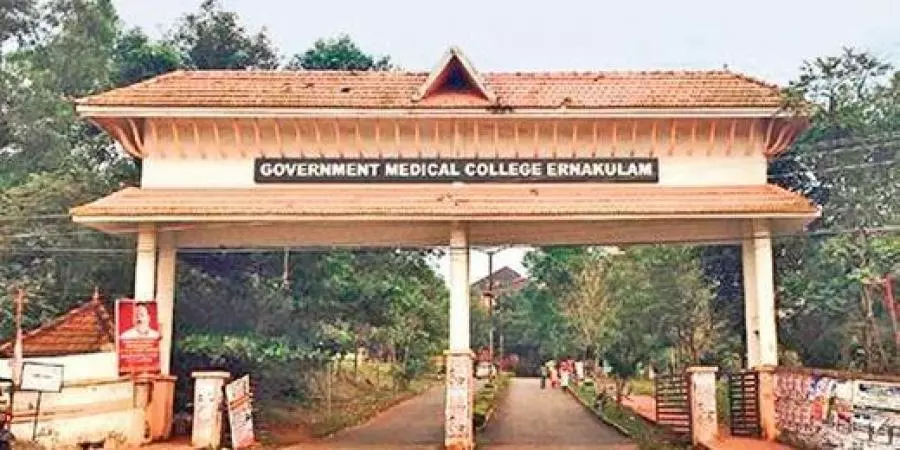
Flaws in Kerala's health care model
text_fieldsHas the spread of Covid started stretching Kerala's health care sector to breaking point? Are health workers being subjected to excess stress due to taxing duty, and becoming unable to focus fully on patient care? Have the co-ordinating role of the state government, widely hailed as a model in containing the pandemic, started going out of gear? Or rather, is an MRI scan necessary to diagnose this loss of rhythm? Such are the concerns triggered by recent controversies about our medical colleges – which form the back bone of public health machinery. For, it is not easy to dismiss as trivial the hardships faced by Covid patients in medical colleges of Kalamassery, Thiruvanhapuram, Manjeri and Kollam, and their relatives. It does not become the utmost vigilance expected in such situations to gloss over the irreversible loss of human lives and the misery of their families.
Allegations have been raised that the death of EK Harris, an expatriate from Fort Kochi, at Kalamassery Medical College, resulted from the fault of health workers in the facility. And the revelations by the nursing officer, Jalaja Devi and junior medical doctor Najma, both working there, lend strength and seriousness to that accusation. Even earlier, there were cases in which medical negligence had put the life of patients in danger. It was in the same hospital that medical student Shamna Thasneem and the engineering student from Aluve, Jerin Michael died. And the two medical personnel mentioned here said openly that it was out of agony over the negligence that they ventured to make such explosive plainspeaking - which could even put their career in the line. But the hospital authorities prepared a report summarily dismissing the charges as untrue and that the death of Harris was not due to medical negligence. However, the Director of Medical Education rejected the report of the Medical Superintendent and has demanded an investigation by an external panel of experts.
The loneliness and neglect suffered by Covid patients in a hospital, where they are denied the support of a by-stander, is beyond description. And who will not be moved by the distress of Anil Kumar, whose body was covered by wriggling maggots, when uncared for by any one in Govt Medical College Thiruvananthapuram? He said with tears that from day two he was not able to see anyone who could be called a doctor and there was no one to provide him food. Such is the extent of pain suffered by a desolate patient deprived of any one to nurse or console him. And shouldn't there be any one answerable for the son who for days had been delivering food and other essentials regularly for his father, but without knowing that his father was already dead, or of the sad plight of the father who had to lie unwept as an unidentified body in the mortuary? Suffice is to cite the fact that Pinarayi Vijayan's government has so far had to declare over two dozen investigations into the deaths of patients who died out of laxity in medical attention or due to mishandling during treatment.
However, not even in one instance was there any action against the doctors or other employees, more than suspension from service. Nor was the shortcoming of the health department probed seriously. There have been recommendations in the Kerala State Law Reforms Commission headed by Justice KT Thomas such as that a doctor refusing treatment without reasonable grounds should be punished with prison sentence of one year and fine upto Rs 25,000. But such recommendations are destined to lie shrouded in the frozen file mortuaries. And the proposal in the state's health policy that a medical ombudsman should be appointed in hospitals including medical colleges to hear patients' complaints, also lies motionless like an abandoned dead body. Even as Kerala takes pride in a health sector that is more robust than of other states, when revelations come up about its flaws those in responsible positions should be ready to lend an ear. Those in government have no obligation to justify shortcomings, and on the contrary should be ready to listen to critics, enquire into facts and rectify errors. It is only through a government's diligence and readiness to remedy shortfalls that the credibility of health sector among the people can be enhanced.
Unfortunately, what has happened now is that nursing officer who brought to light a fault has been suspended. And a doctor is subjected to cyber lynching for confessing that due to the inefficiency of the hospital, patients are thrown into woes. And pro-government groupings clamour in chorus for taking action against her. This by no means goes well with the democratic values upheld by the state. It will only help perpetuating similar laxity. If the reason for such incidents is the work pressure and stress experienced by doctors and nurses, what the government should do is to effectively solve them. Instead of that, if it gives room for politicising of such flaws, it will not in the least help the health care sector.





